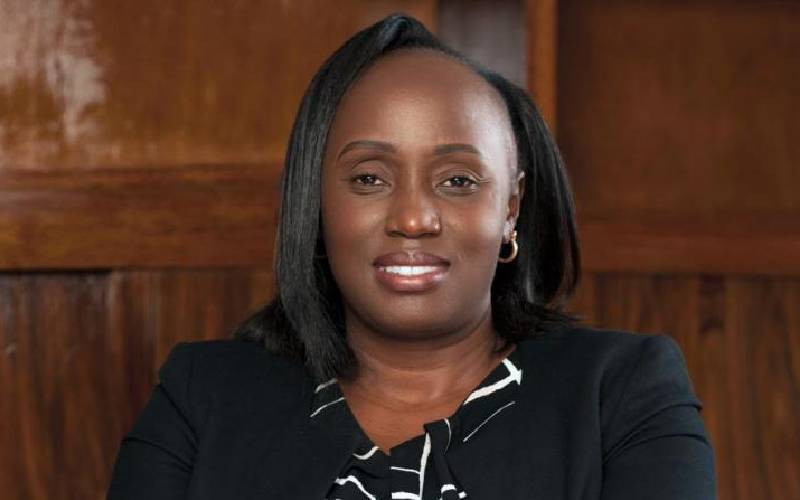
Whenever you inject your money in any investment, you expect to earn profit from it. But at times, as it is the nature of any business or investment, the returns may not be as expected or you may lose your cash altogether.
How to move on from this loss, especially if it is your first investment, can be a heart-wrenching experience. Experts advise you to conduct surgery on what might have caused your business to fail.
Patrick Okinda, a senior business analyst with iGrand Business Plans Limited, who specialises in writing business plans says businesses do fail for three basic reasons - the market fails to respond, operational reasons and capability of the entrepreneur.
“There is always a risk and an entrepreneur should be able to predict what is likely to come up. And as much as you cannot completely foretell the future, there are basic things that you need to put into the limelight,” says Okinda.
Do your homework
Sometimes it could be that you lost the money you invested because you did not get people to buy whatever you were selling. Such happens when you predict that you will sell your products at a certain price guaranteeing you a particular margin.
Okinda references this to the real estate bubble which burst for some firms after they could not offload the units put up.
“You could be putting up products meant for expatriates who are paid a lot of money but there are only 100 in the location while whatever you are selling if it was at a price that the majority could afford, it could sell,” he points out.
Operational problems is when you are not able to deliver on the work that you have because you have no experts or you are yet to streamline how work should flow.
“Basically you are taking more orders than you can handle or you do not have the infrastructure to do the job, business systems or tools to work. Let’s say you are running a media company and you do not have a camera or a way to get footage,” says Okinda.
The entrepreneur’s capability also determines an investment’s downfall. Okinda says even before the bank lends you money for a business, it has to analyse if you have the expertise in that area.
“Let us say you want to open a car yard, how well do you understand the industry? You could have sold in a car yard or participated in import trade and with that knowledge the bank will be convinced that they can give this person money to start a car yard,” he says.
Beyond your control
There are also factors beyond an investor’s control.
“There are issues to do with regulation and governments. You realise there are many companies in hotel industry which closed shop or are performing poorly because of some of the regulatory issues that came up during Covid-19,” he says.
In this case, businesses fail by simply being non-compliant to the regulator.
“If you are non-compliant, your licence will be withdrawn and you will be unable to operate,” Okinda observes.
Reginald Kadzutu, CEO Amana Capital, a fund managing firm, says if the loss of investment is beyond your control, you should consider tightening selection criteria of which business to invest in.
“You might have done your analysis but something goes wrong to mean there are things that you might have missed,” he notes.
He gives an example of someone investing in a company listed with the Nairobi Securities Exchange after analysing how affordable the company’s stocks are and projecting by sometime in the future they would have hit a particular price.
“But you did not look at the company’s financials this may tell you the businesses potential,” he says.
If you did look at the financials, then maybe you ignored the balance sheet which might have indicate the company has a big debt.
“So you just try and refine whatever system you used in the initial selection,” warns Kadzutu.
When to stay, when to run
Sometimes, he says, people lose money because they invest in areas or businesses they do not understand.
“Even when everyone is saying this is the way, if you do not understand it, chances are high you will not see the red flags or tell-tale signs of trouble. That might be a lesson on what to check before you invest,” he said.
If the loss isn’t unbearable, Kadzutu says it could be time to run away from that venture altogether.
“You do lose some and make money on some,” he says. “But the key message is refining whatever process you used to select because that is normally where the weakness lies.” But if the loss is because the investment has gone down, and the fundamentals of the company or industry are still okay, then this might be another golden opportunity for you to stick around.
This provides the entrepreneur with the opportunity to buy more (shares) at a lower price.
“For example, if you invested in EABL, but because of Covid-19 that led to the closure of bars, their profits reduced last year. Does this mean there is something wrong with EABL? No. Is there anything wrong with their business model? No,” explains Kazdutu.
Work with fund managers
Such a scenario means the situation is just temporary.
“If you panic and sell off then in a year’s time you will be looking back and think ‘I should have held onto that investment or even bought more,” he says.
When you buy into a company at a cheaper cost, you have an opportunity to sell when the market recovers and that, Kadzutu says, is profit.
Kadzutu notes that many times people burn their fingers because they do not seek professional advice first. He notes that most people rarely work with experts.
“My experiences with the majority of people is they always ask ‘what should we buy now? What is good to buy now?”
“Many a time such people act based on emotions and euphoria. This would have been avoided if they used experts. Professional investors and fund managers have to do an analysis, present it to the investment committee, before getting approvals,” he says. This process however is not automatic, he says, as there are blind corners.
“Fund managers operate based on financial accounts; so whatever the financial account says, you think it is true but there is an auditor who says ‘these are correct,” he notes. “But if the auditor falsifies anything then professionals can also get caught off guard.”
He adds that even when a professional tells you to buy shares of a particular company because of certain reasons, it is good to take time and analyse the recommendation. You can also call another professional to seek their opinion.
“Like we do with doctors; when they tell you you need to go for a surgery, you will seek a second opinion,” he said.
 The Standard Group Plc is a multi-media organization with investments in media
platforms spanning newspaper print operations, television, radio broadcasting,
digital and online services. The Standard Group is recognized as a leading
multi-media house in Kenya with a key influence in matters of national and
international interest.
The Standard Group Plc is a multi-media organization with investments in media
platforms spanning newspaper print operations, television, radio broadcasting,
digital and online services. The Standard Group is recognized as a leading
multi-media house in Kenya with a key influence in matters of national and
international interest.
 The Standard Group Plc is a multi-media organization with investments in media
platforms spanning newspaper print operations, television, radio broadcasting,
digital and online services. The Standard Group is recognized as a leading
multi-media house in Kenya with a key influence in matters of national and
international interest.
The Standard Group Plc is a multi-media organization with investments in media
platforms spanning newspaper print operations, television, radio broadcasting,
digital and online services. The Standard Group is recognized as a leading
multi-media house in Kenya with a key influence in matters of national and
international interest.










